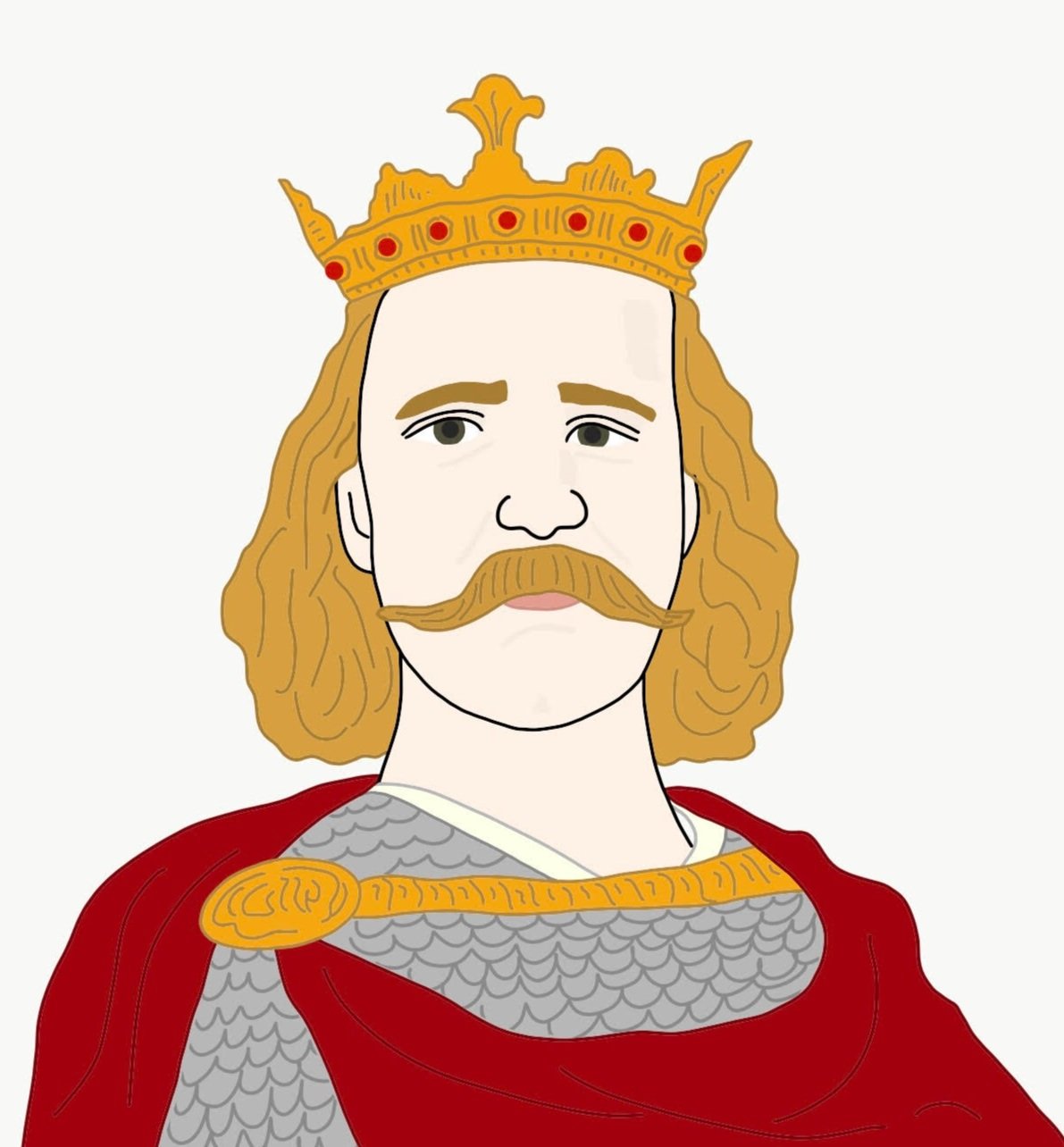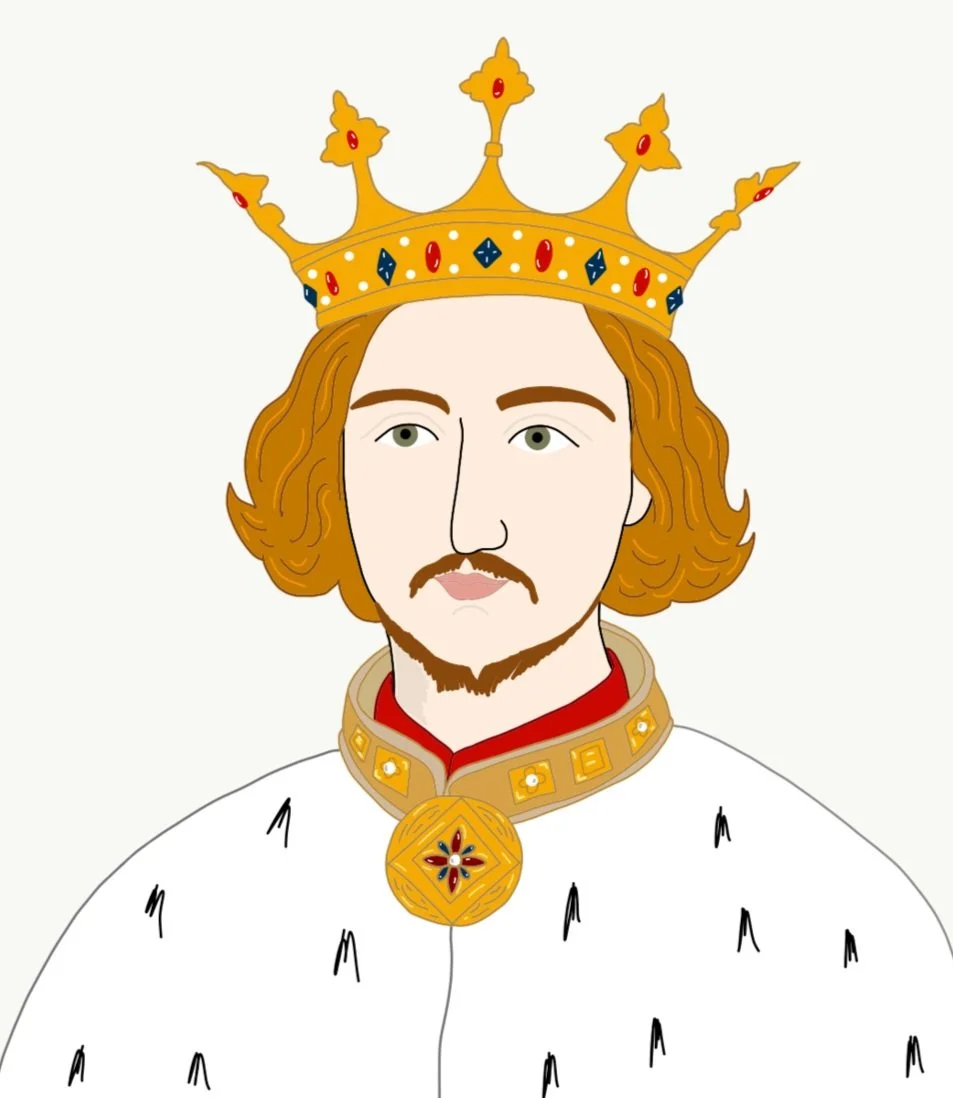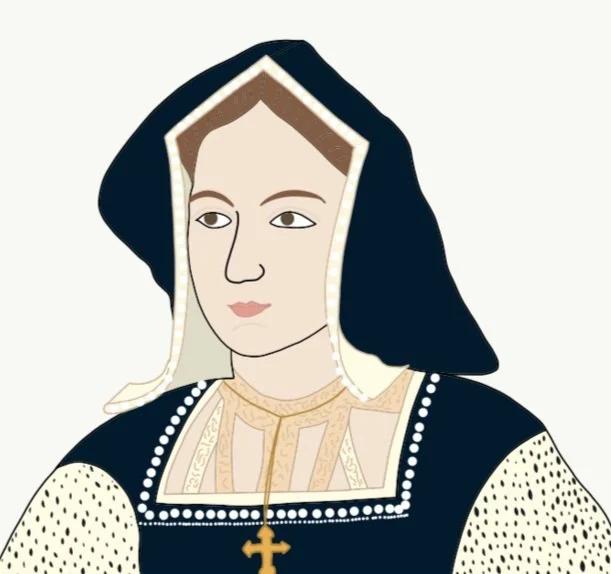January 6th - 12th
On 6th January…
Just one day after the old king died, Harold Godwinson was crowned King of England
1066 - Harold Godwinson was crowned King Harold II at Winchester Abbey the day after Edward the Confessor died. The speed with which he was crowned following the death of the previous king hinted that he knew his position was in jeopardy - being crowned king gave him some security but it wasn’t secure enough, and before the year was out he had to fight off two other claimants to the throne - King Harald Hardrada of Norway and William, Duke of Normandy.
Richard II was born in France
1367 - King Richard II was born in France. His father was Edward the Black Prince, son of King Edward III. Richard became king when his grandfather, Edward III, died because his own father had died when he was only nine years old.
1852 - Louis Braille, the inventor of Braille, the system of reading and writing for the blind died of tuberculosis.
On 7th January…
Catherine of Aragon died
1536 - Catherine of Aragon, the first wife of King Henry VIII and mother to Queen Mary I, died.
Moons spotted orbiting Jupiter
1610 - Galileo Galilei noticed the first three moons of Jupiter: Io, Europa and Ganymede. Upon further observation he realised that they weren’t stars but were in fact moons orbiting Jupiter. A few days later he spotted a fourth moon, Callisto.
On 8th January…
871 - Following their recent defeat at the Battle of Reading, just four days previous, the Anglo-Saxons faced the Vikings again at the Battle of Ashdown. This time they had more forces and had split into two Anglo-Saxon armies; one was led by King Aethelred I of Wessex and another by his younger brother Alfred (the Great). This time they won the battle and forced the invading Vikings to retreat, but the war was still not yet won as little did they know they were to face each other in battle again just two weeks later.
1107 - King Edgar of Scotland died. He was the first King of Scotland that united Celtic and Anglo-Saxon blood; his father was King Malcom III, and his mother was Margaret, a granddaughter of King Edmund II of England.
Death of the astronomer Galileo
1642 - Galileo Galilei, the Italian astronomer died. His observations of the solar system led him to confirm Copernicus’ theory that the Earth revolves around the sun.
1941 - Robert Baden-Powell, the founder of the Boy Scout movement, died.
1942 - Stephen Hawking, the famous physicist, was born in Oxford, England. In his twenties he was diagnosed with motor neurone disease which is a disease that stops cells in the brain and nerves in the body from communicating properly leaving the person unable to move. Despite his disability Hawking continued to study and research. He received many honours and awards including a CBE in 1982 from the Queen.
On 9th January…
1799 - Income tax was introduced in Britain by the Prime Minister, William Pitt the younger, to raise funds for the Napoleonic wars. Everyone earning over £60 a year was taxed. Those earning over £200 were taxed at 10%, this meant that they had to give the government 10% of their income; people who earnt between £60 and £200 paid a graduated rate from just under 1% to 10% depending on how much money they earnt. So, if somebody was earning £200, they would have to give the government £20 of their wages to help pay for the war. Today we pay income tax to help pay for lots of things, such as the NHS, schools, and emergency services.
1806 -Horatio Nelson, the Admiral who led the British navy to victory over Napoleon at the Battle of Trafalgar received a State Funeral and was buried in St Paul’s cathedral. Having died at the Battle of Trafalgar his body arrived back in England on December 23, 1805 and lay in state from 5th to 7th January. Over 15,000 people came to pay their respects and see his body. On 8th January, his body was taken up the Thames from Greenwich to Whitehall where it spent the night before being taken on a funeral procession in a model of his ship Victory, through the streets of London to St Paul’s. Every year wreaths are laid on his tomb at a special ‘Sea Service’ held on the nearest Sunday to Trafalgar Day (21st October).
1982 - Kate Middleton, the Princess of Wales, and wife of Prince William was born in Reading, England.
On 10th January…
1840 - The uniform penny post mail system began in the UK. Before this time the person receiving the mail had to pay for any letter that was sent to them, and the charge was based on the distance the letter had come and how much it weighed. (I wonder how many bills were returned to sender back then?) The standard penny charge in which every piece of post cost just one penny (1d) was extremely popular, and more and more people began to use the postal system. There were no stamps at that time, so each piece of post was hand-struck (written or stamped on with ink) to prove postage had been paid before being sent. By May of the same year adhesive stamps were introduced to pay for postage; the stamps used were called ‘Penny Black’ because they cost a penny and showed Queen Victoria’s profile in white against a black background.
The London Underground opens for the first time
1863 - The London Underground opened its first railway line which ran between Paddington (then called Bishop’s Road) and Farringdon Street. The trains were not run on electricity like they are today, but instead were all steam powered. Can you imagine what it must have been like with all the steam and smoke in those underground tunnels?
On 11th January…
1569 - The first English national lottery was held outside St Paul’s Cathedral in London. It was held to raise money to rebuild and repair England’s harbours and coastal defences which were all in need of maintenance and repair. Queen Elizabeth I thought that a lottery would be a more popular way to raise more money than by taxing the population. The tickets cost 10 shillings each and every ticket was guaranteed to win a prize. Unlike today where you choose numbers and hope that your numbers are drawn, the tickets sold were blank pieces of paper. On the paper you would write your name and a ‘device’ (which was often a prayer or a line or two of verse). The tickets would all be put into a box until the draw date, which for this particular lottery didn’t happen until May. On the draw date a person was blindfolded and asked to select a ticket from one box and another piece of paper from a second box which had a prize written on it. The prizes ranged from a silver plate to a large sum of money.
Would you rather buy a lottery ticket knowing that you will win a prize even if it is a small prize, or would you rather buy a lottery ticket in the hope of winning a large amount of money but knowing that you might not win anything?
On 12th January…
1976 - The crime writer Agatha Christie died at the age of 85 years. Her stories have sold millions of copies worldwide and been made into TV shows and films. The most famous detectives from her stories were Miss Marple and Hercule Poirot. She also wrote plays, one of which has been staged continuously in the West End (London) since 1952, that’s over 70 years. It only stopped during Covid restrictions when lockdown was put into place to stop the spread of the virus COVID-19.




